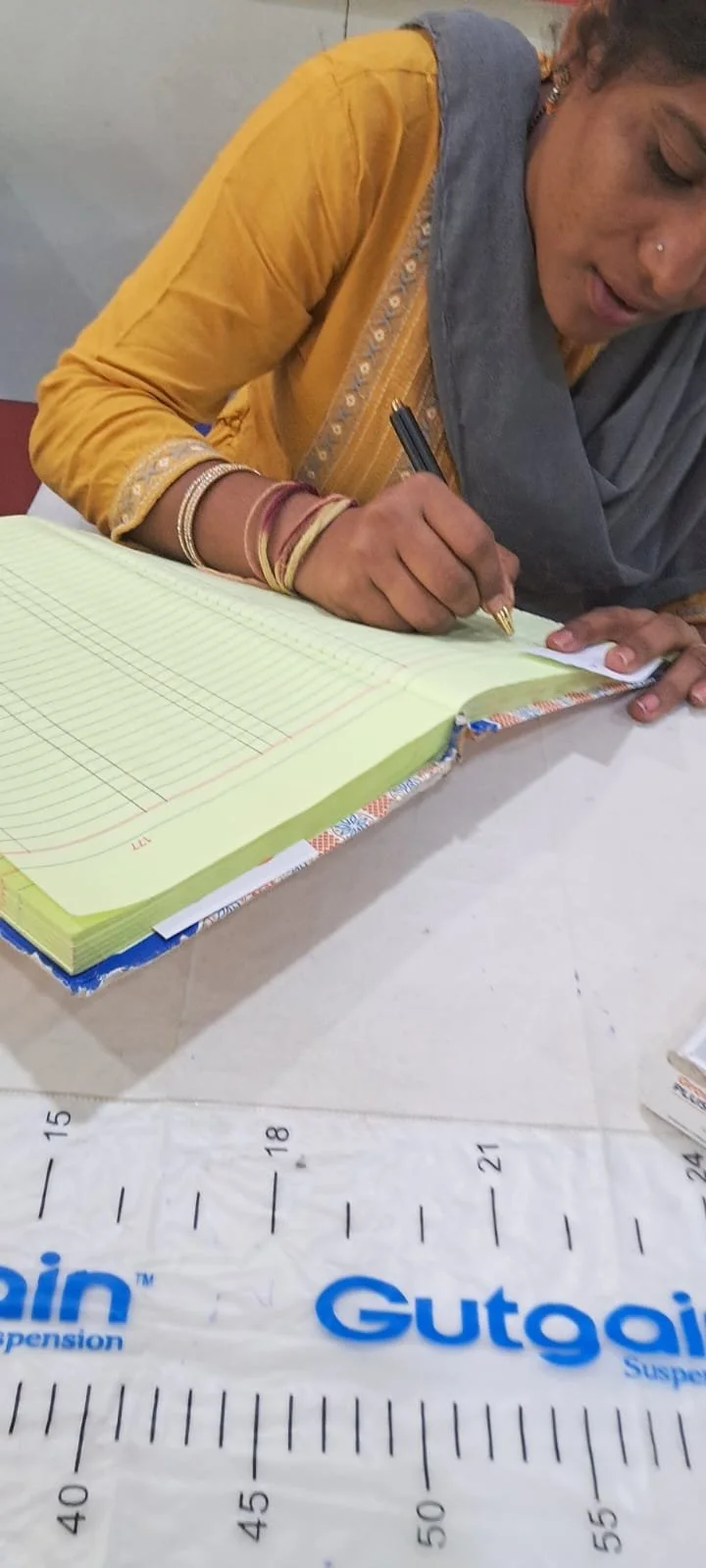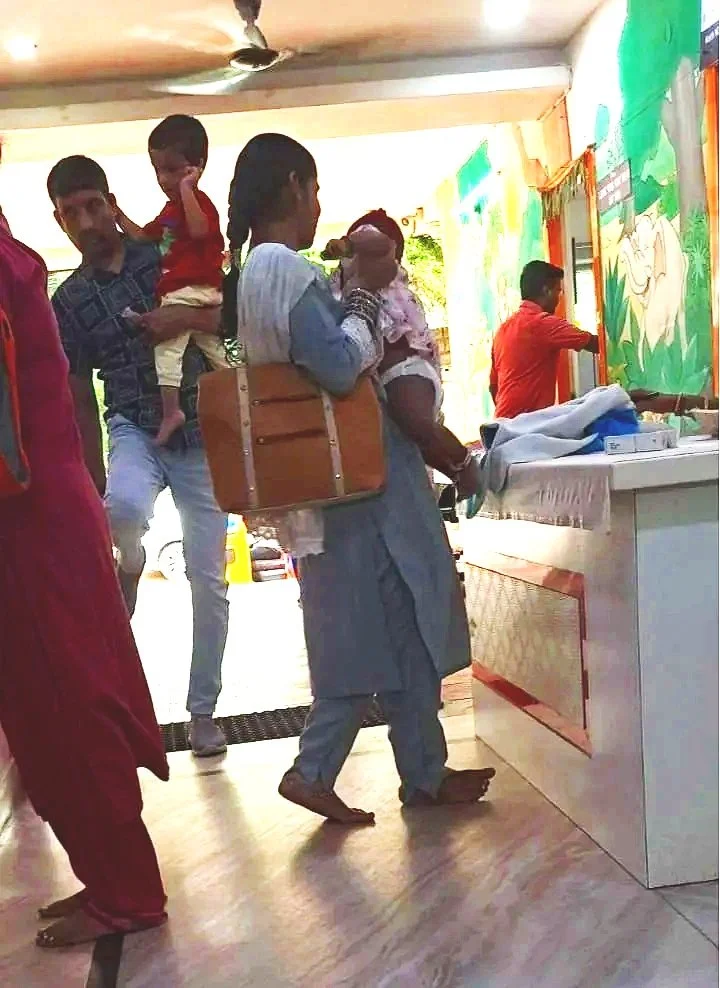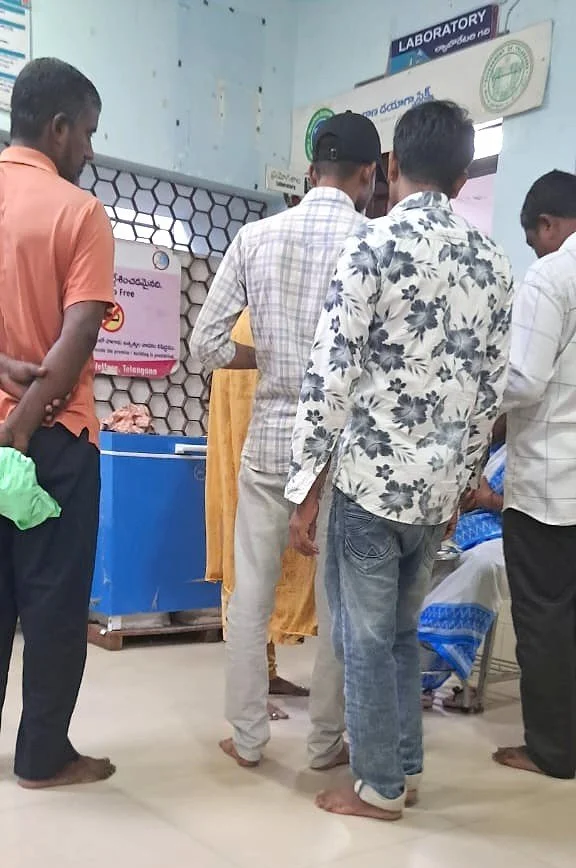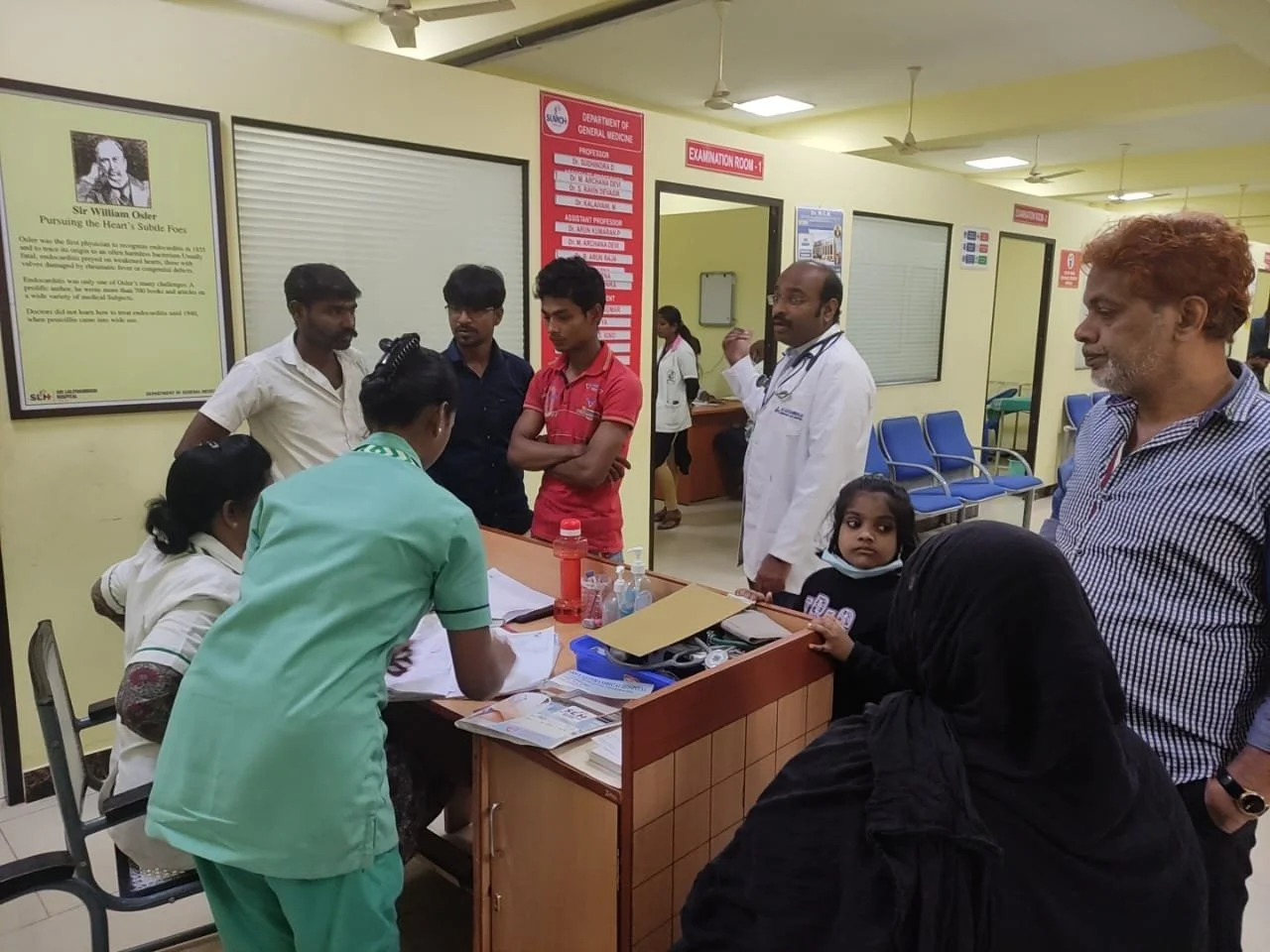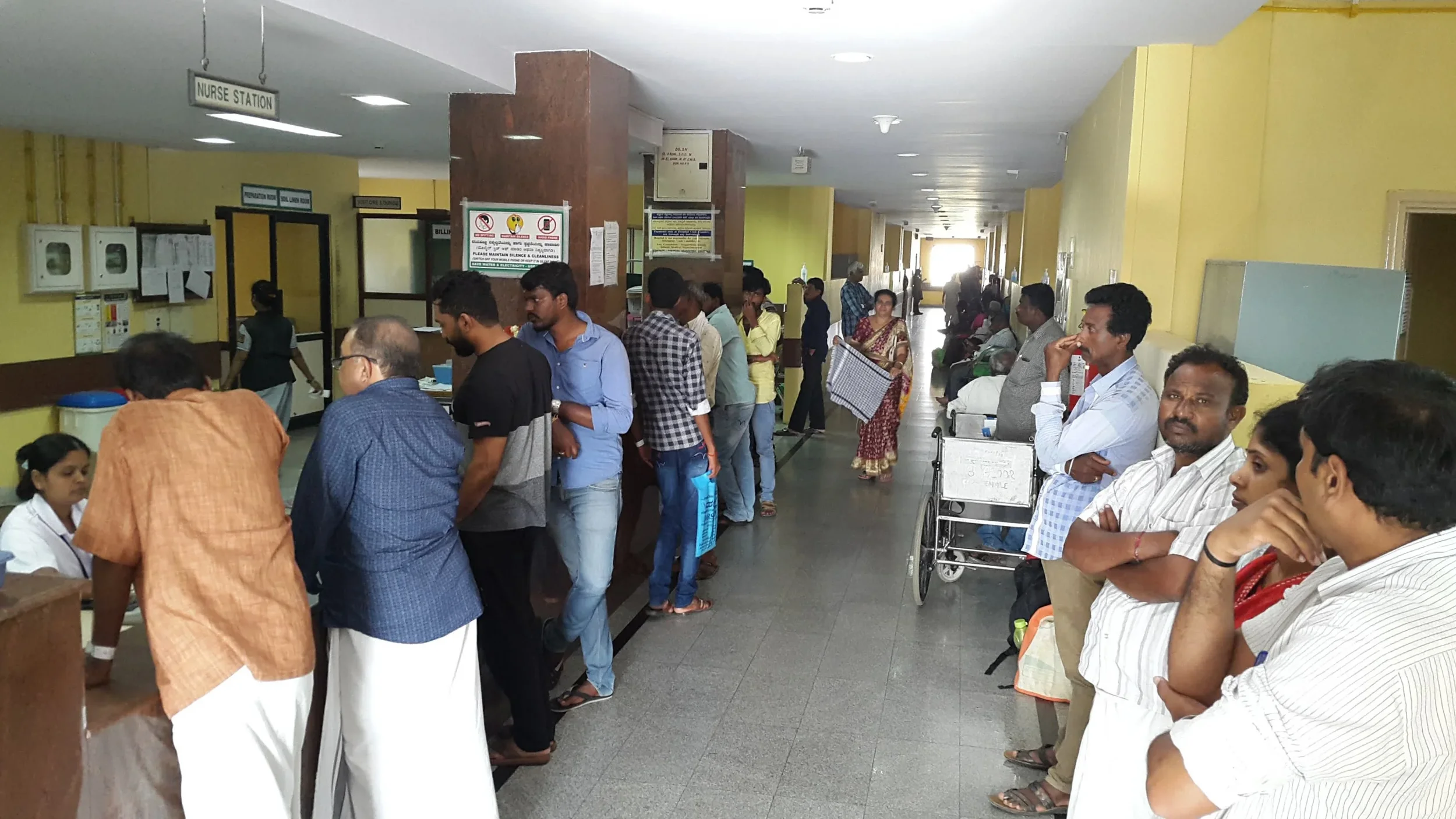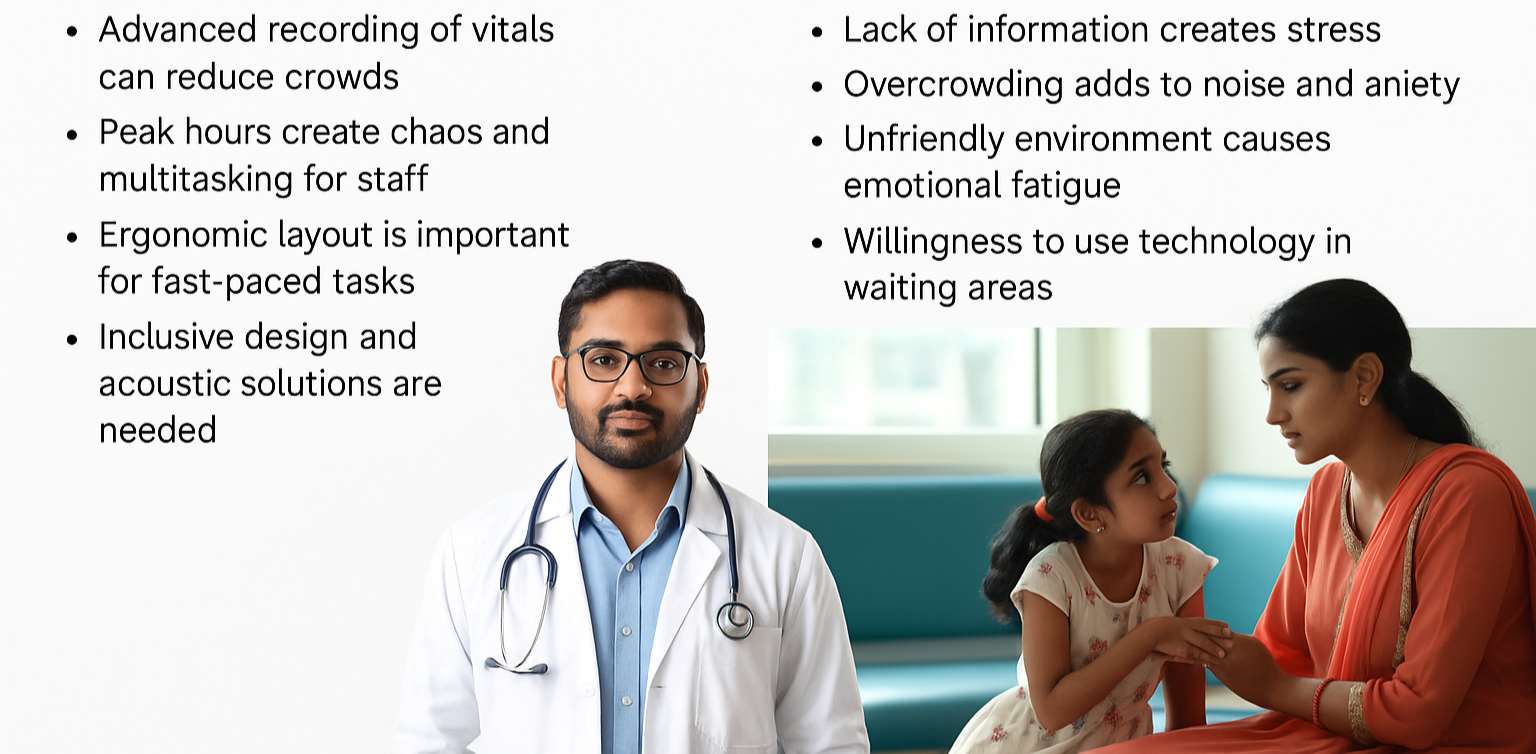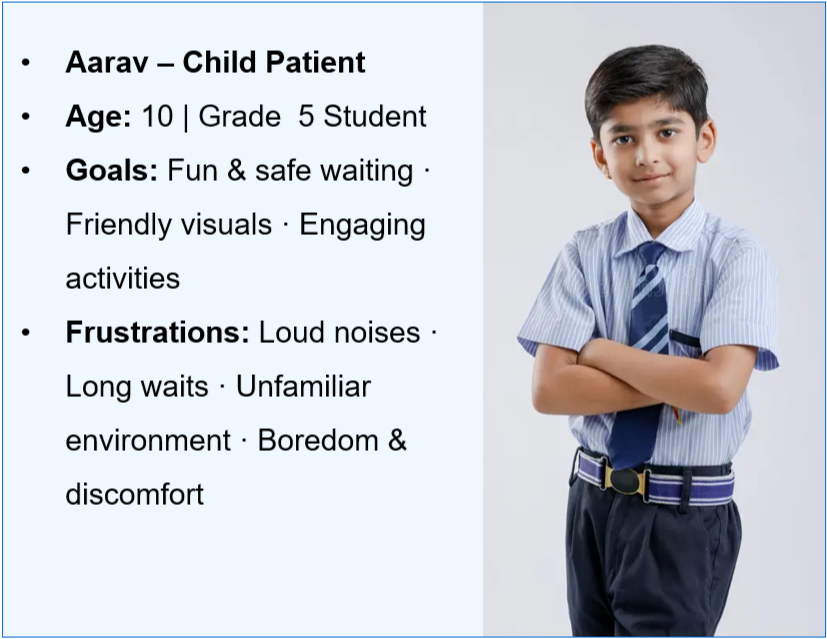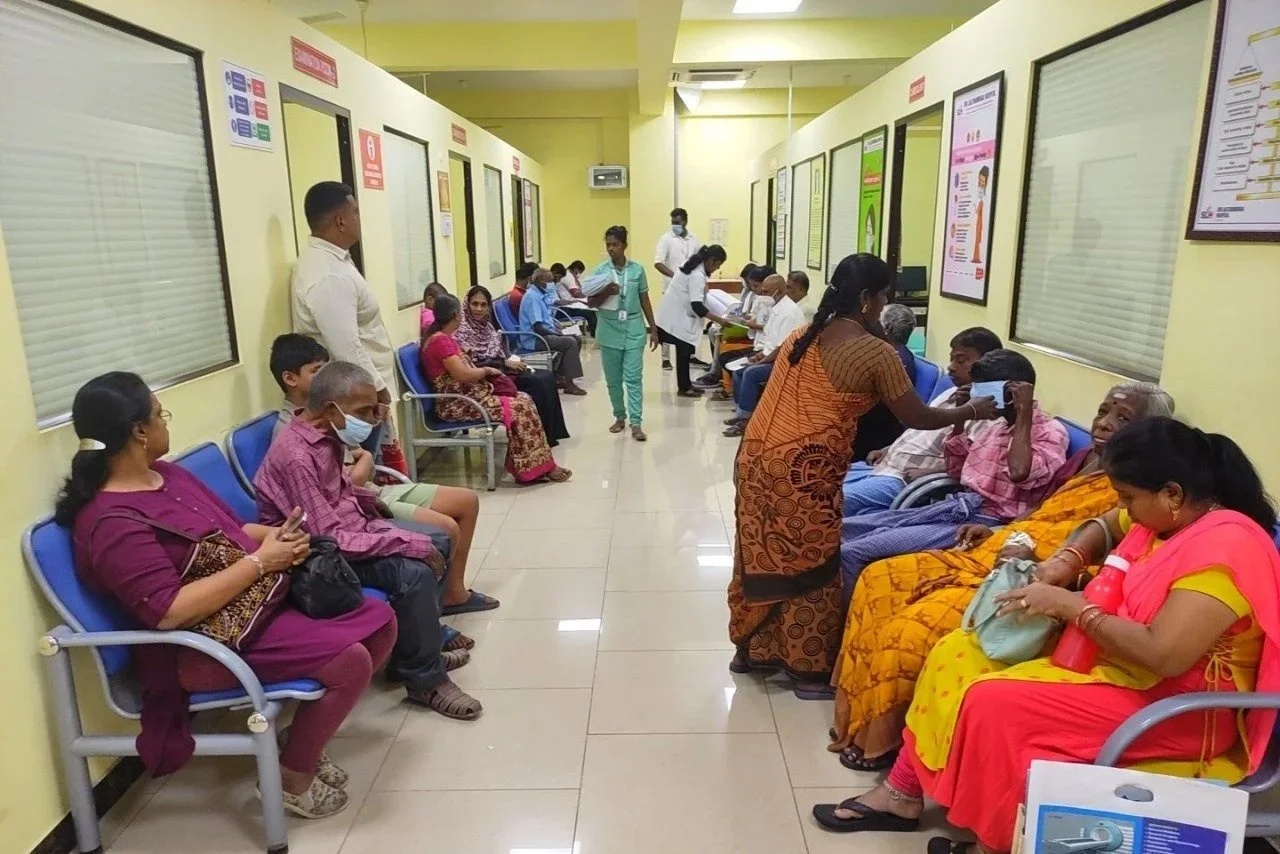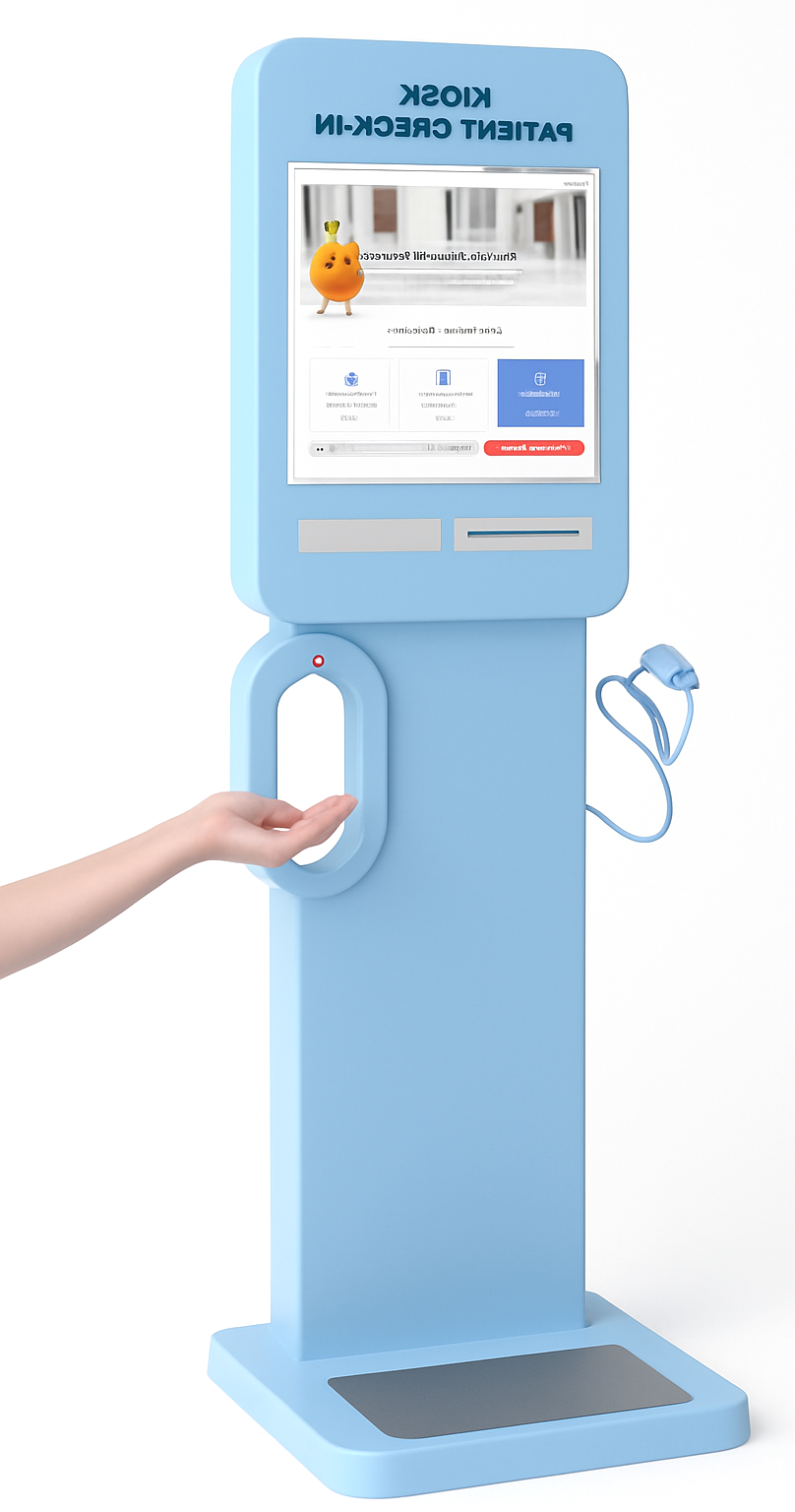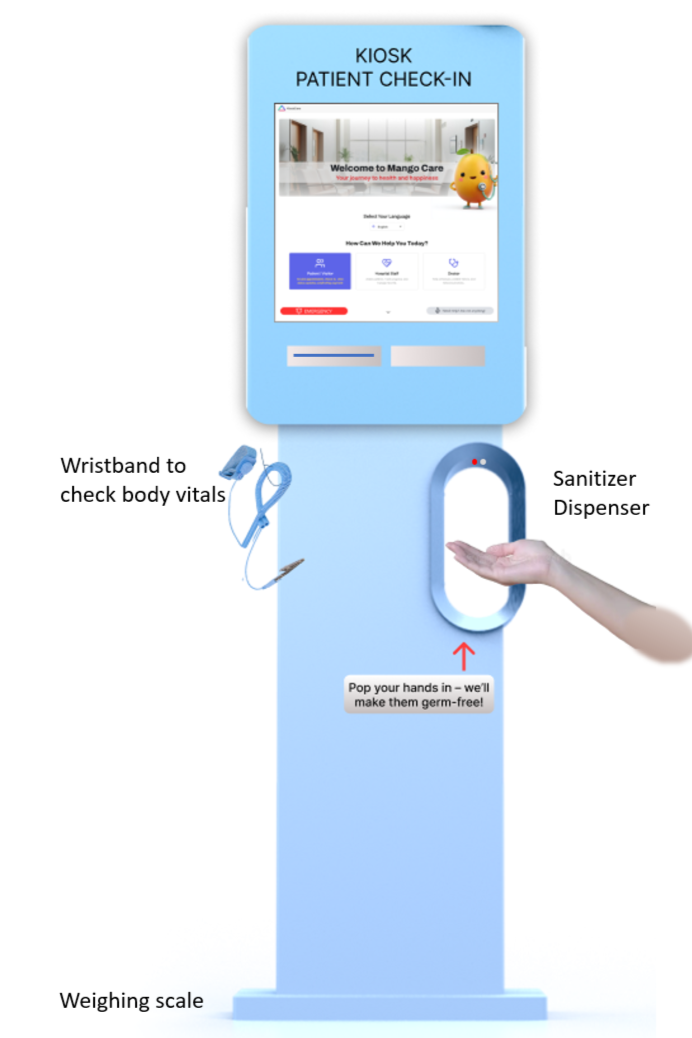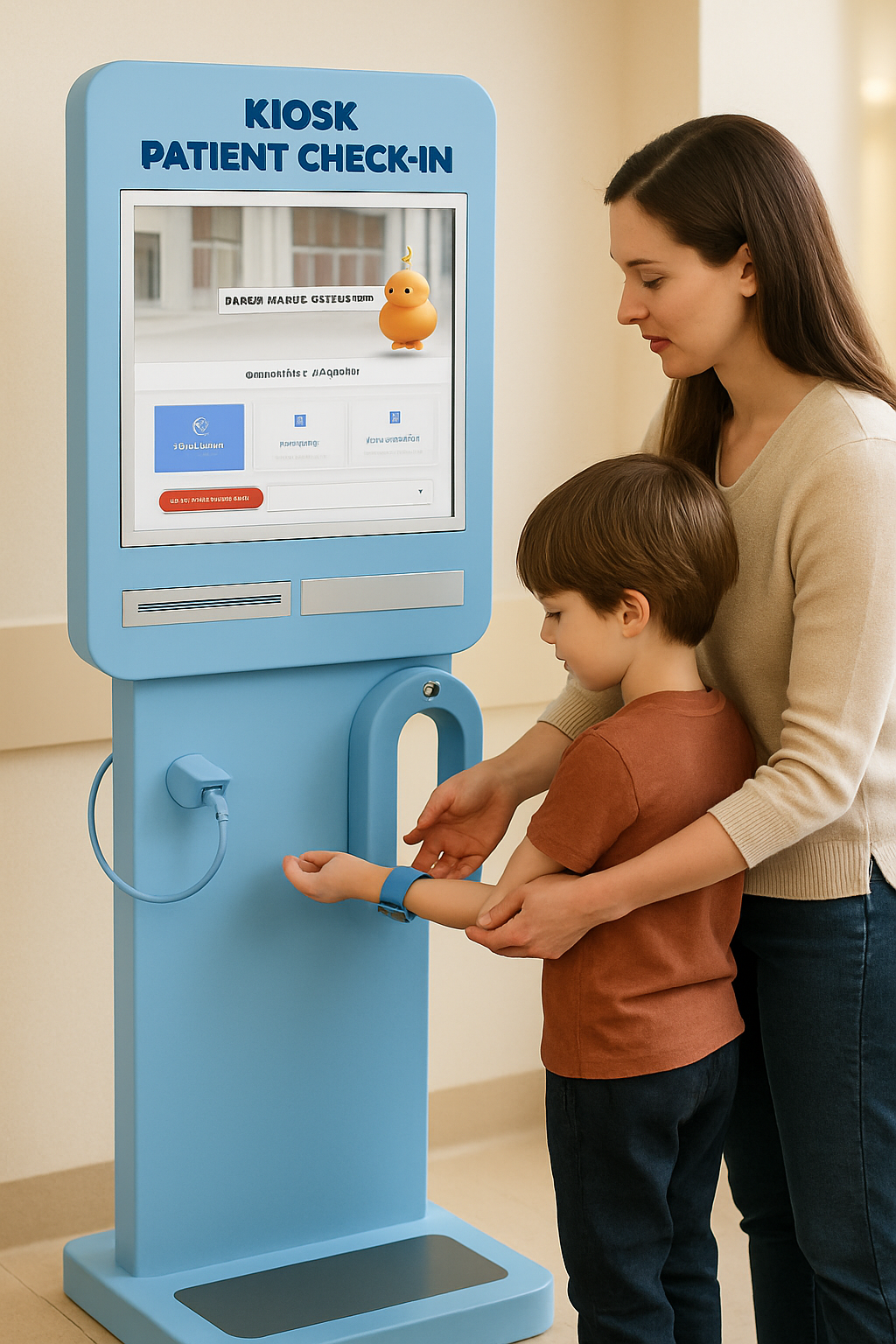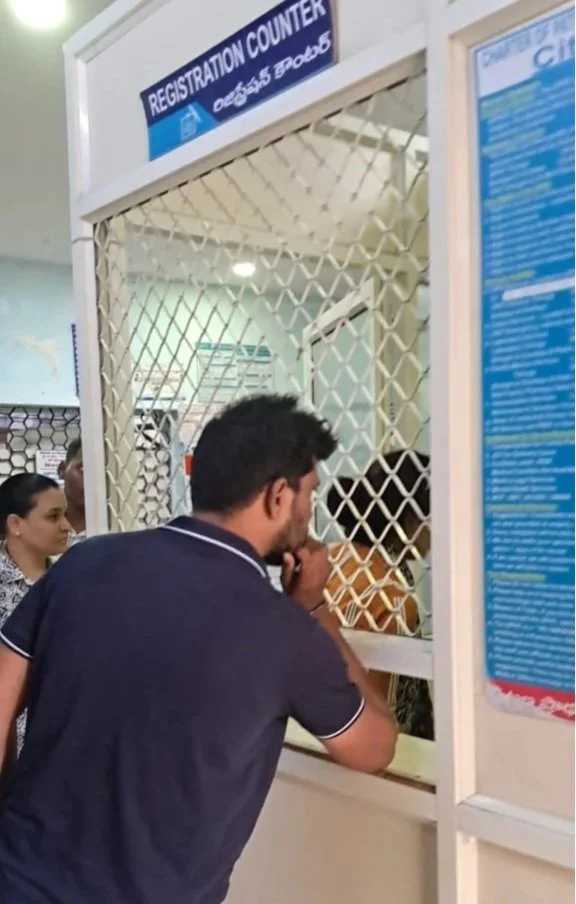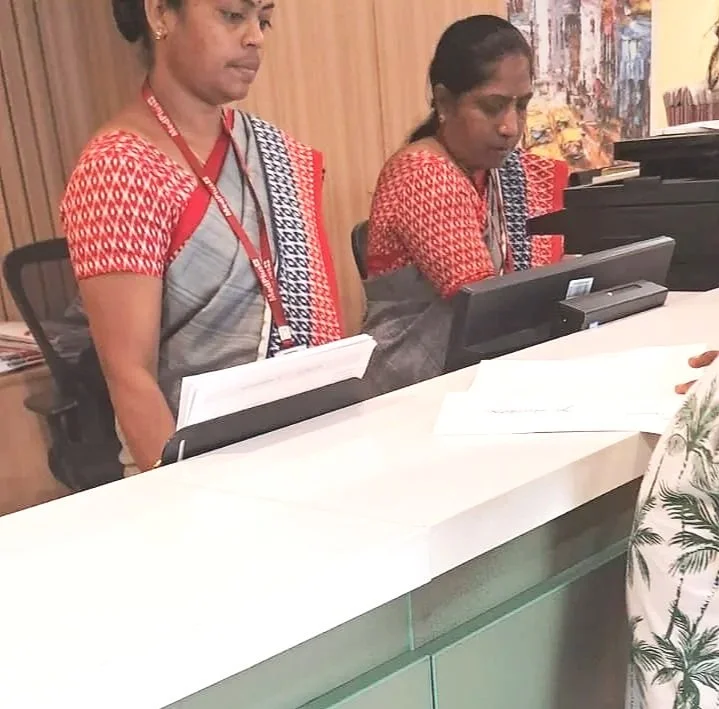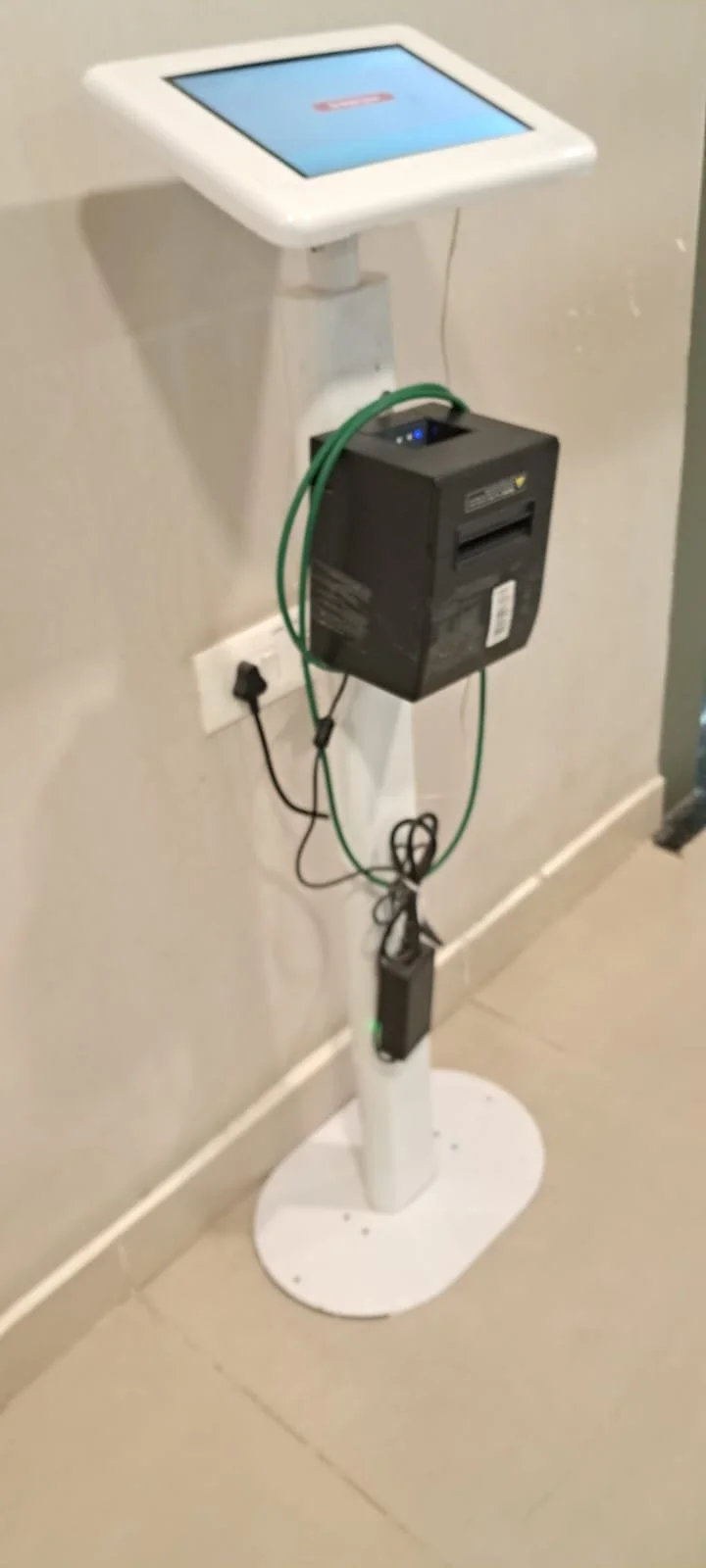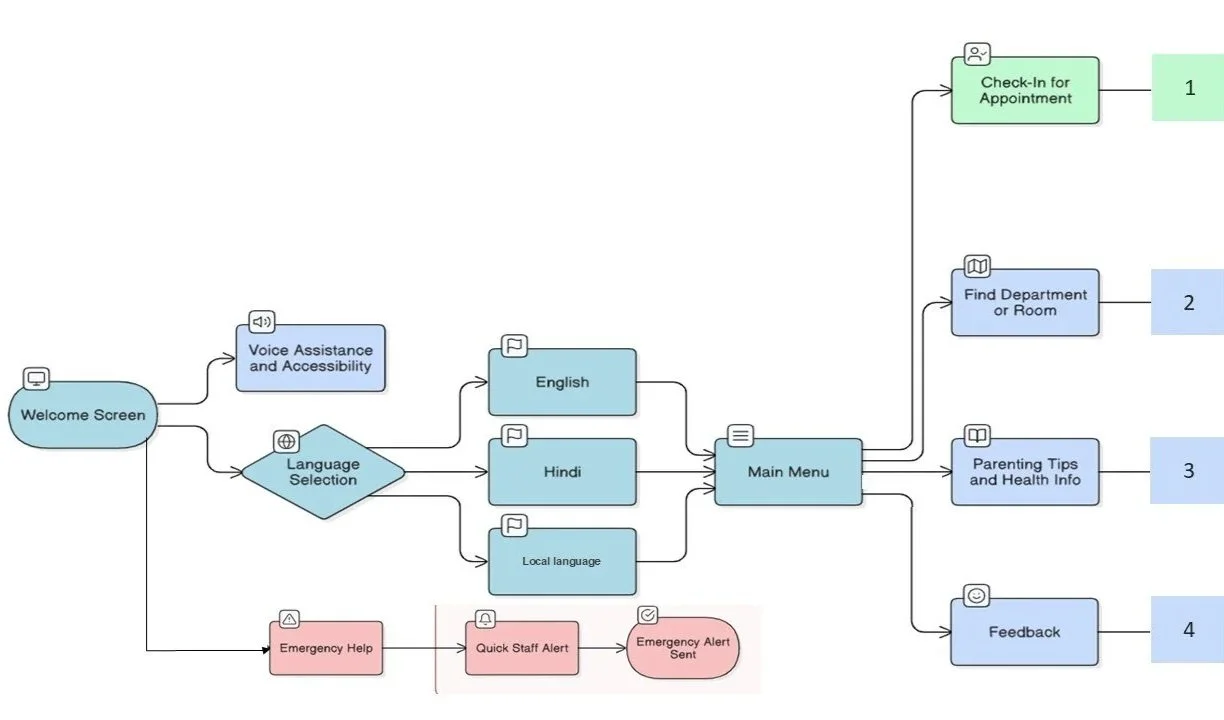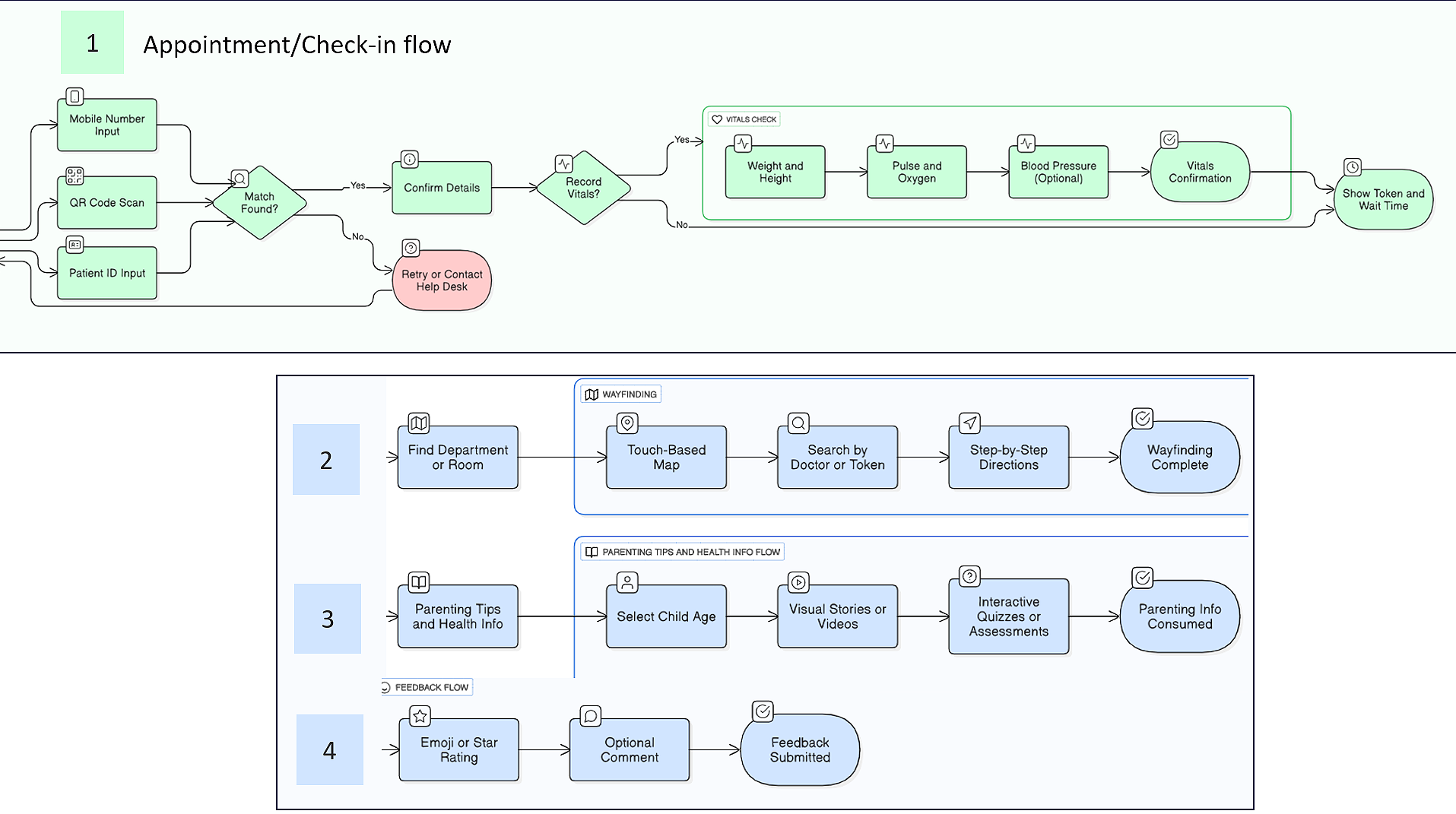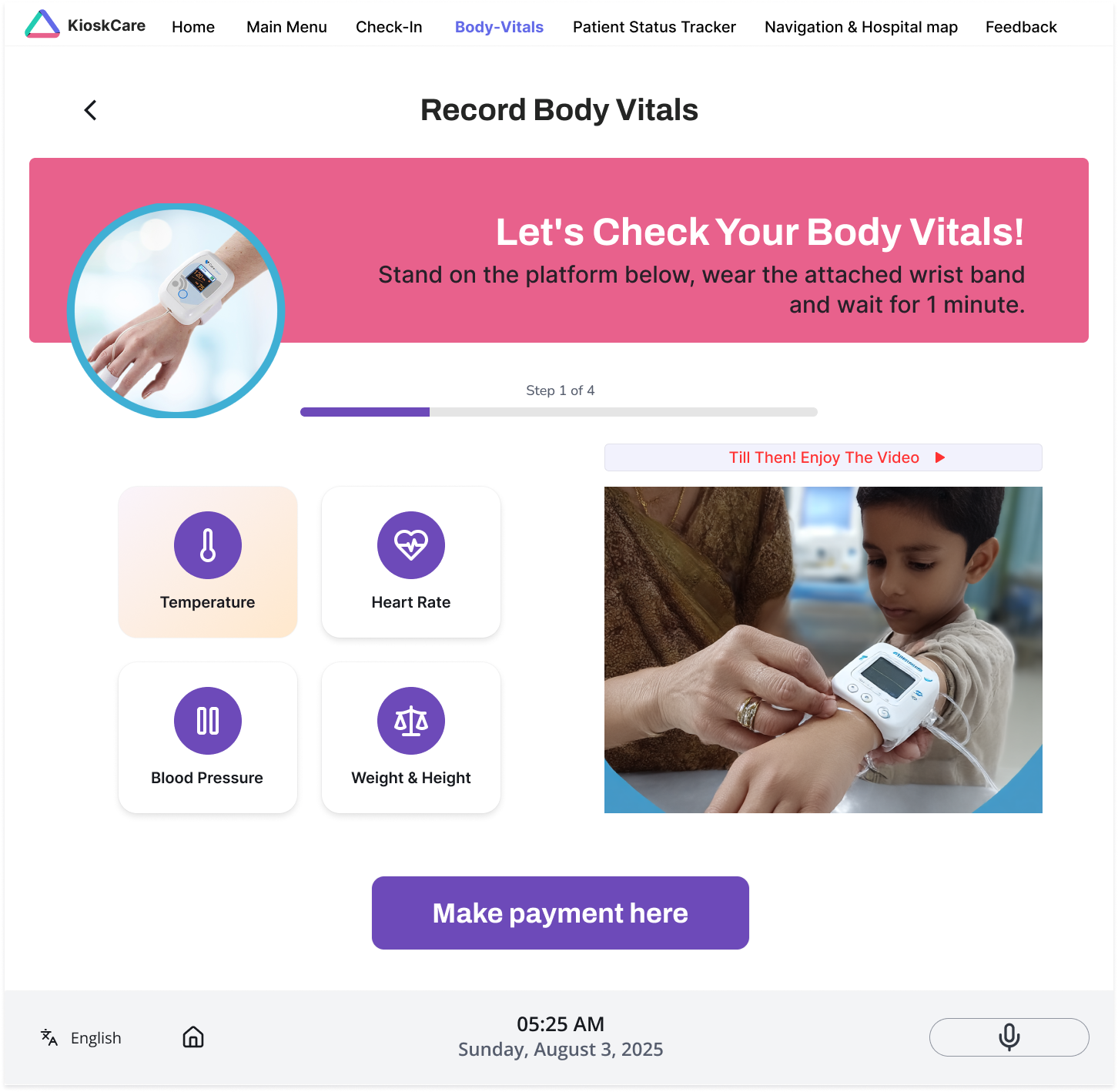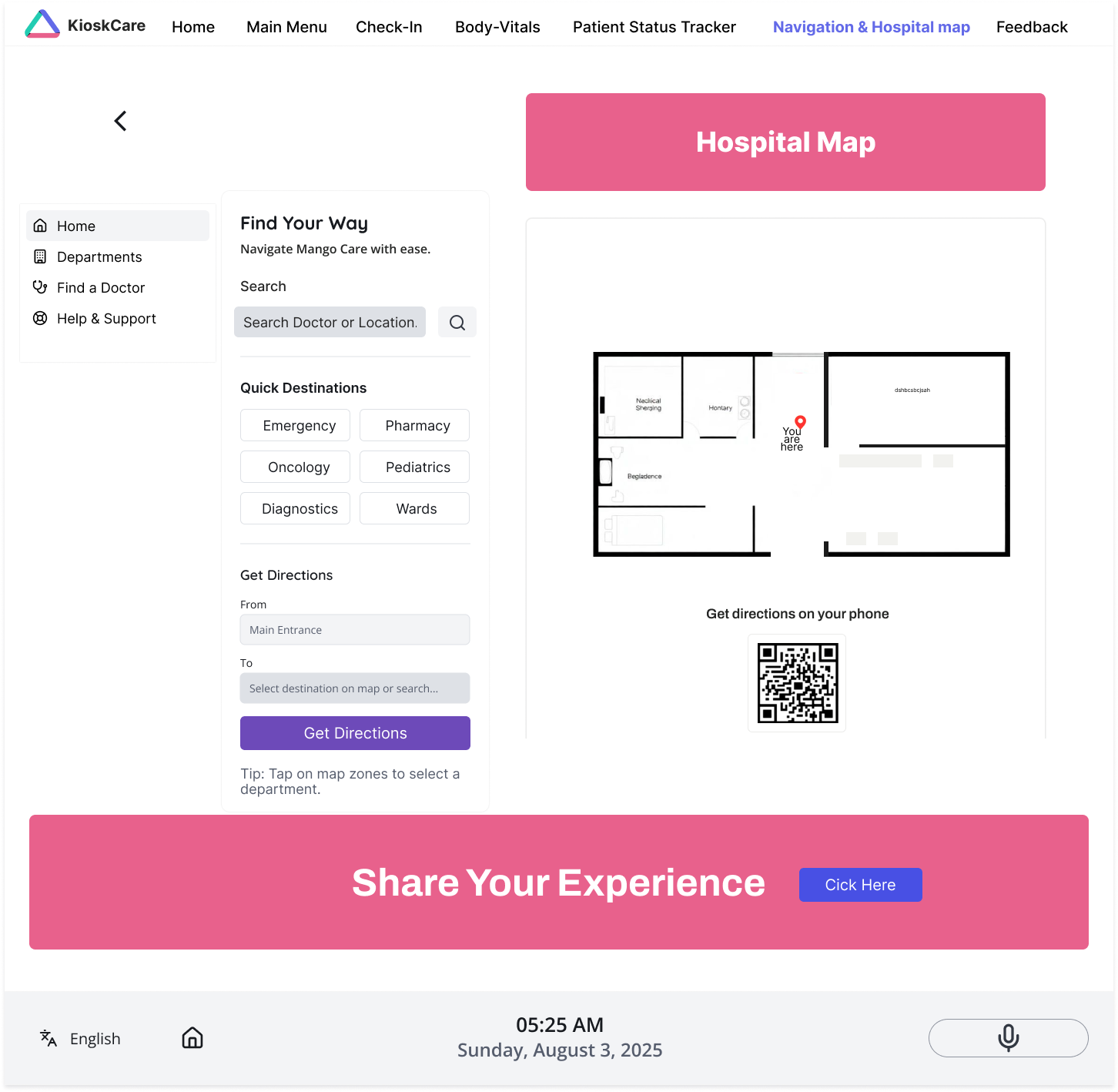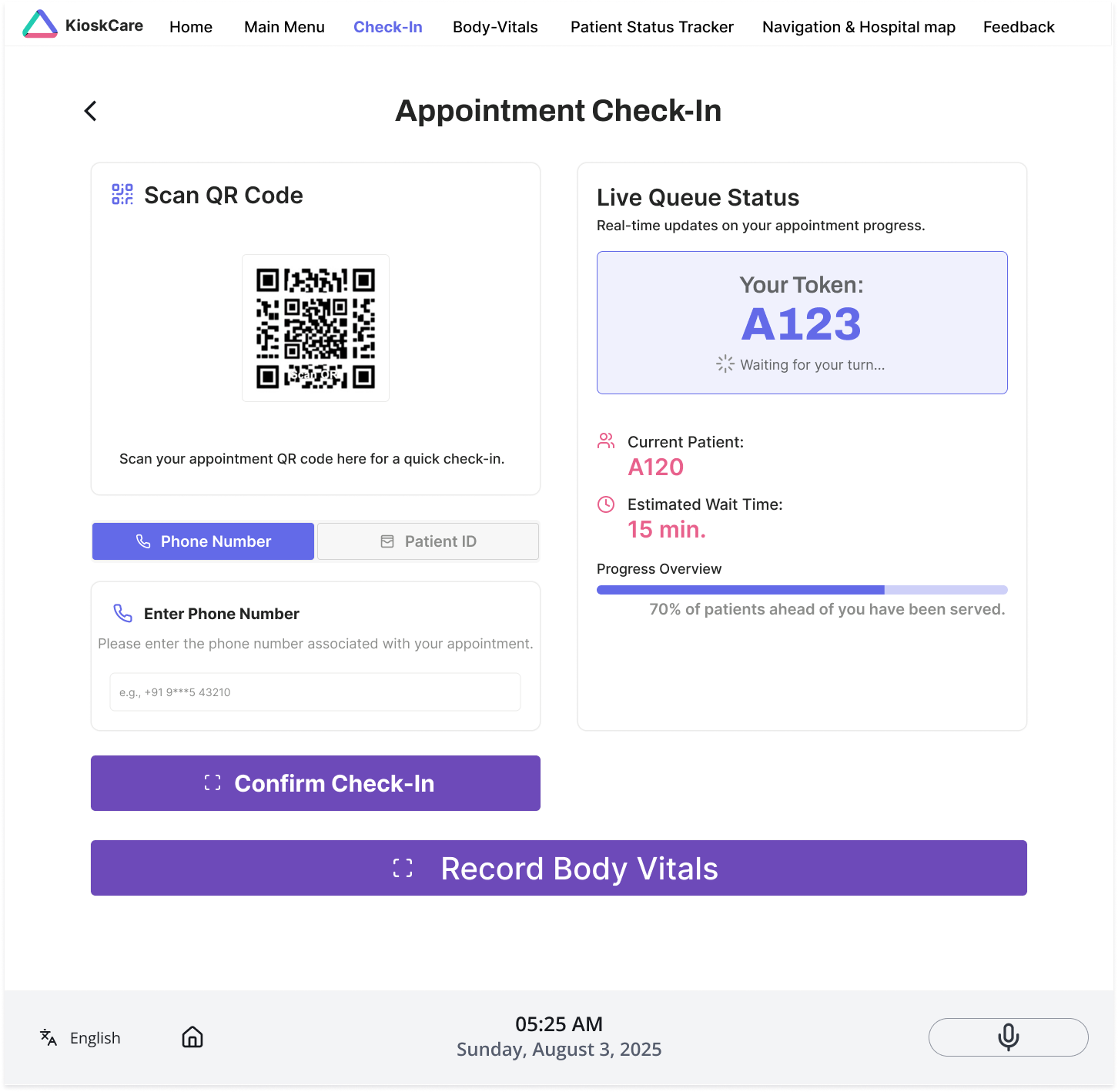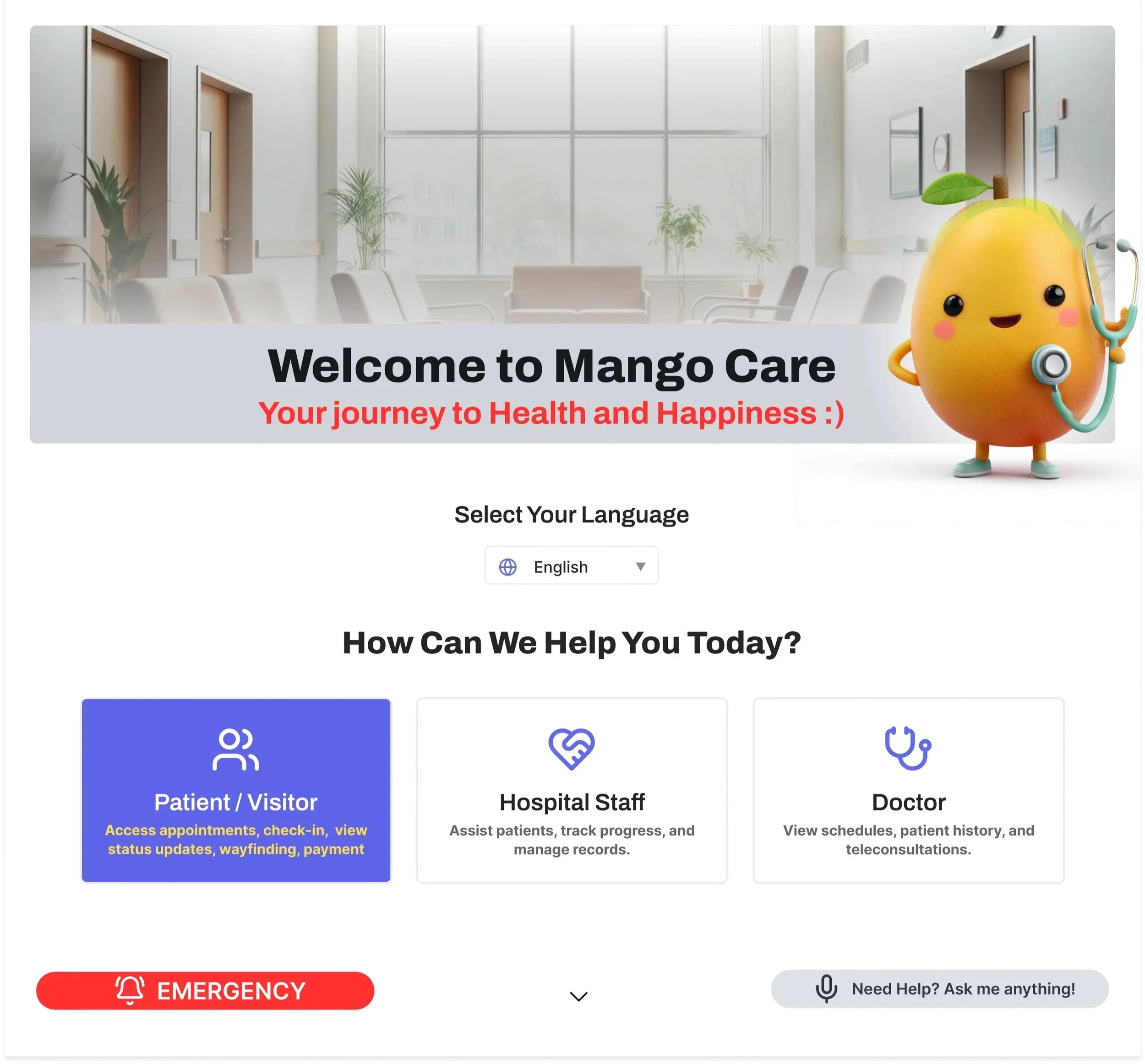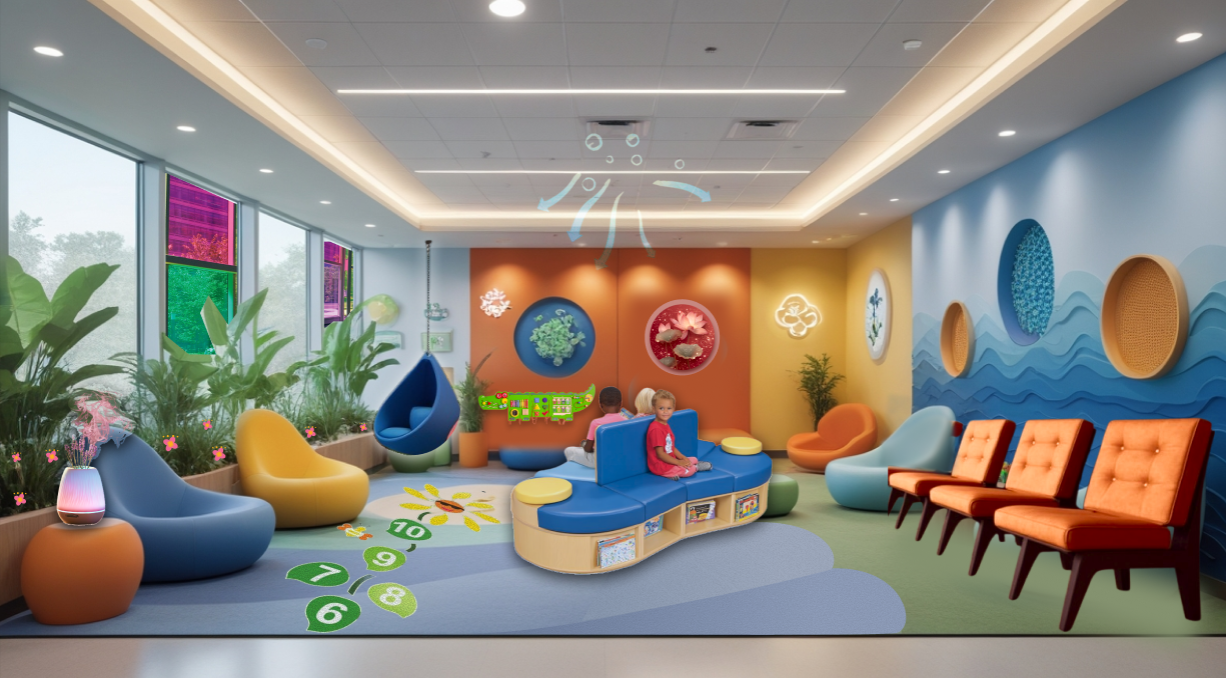DIGITAL KIOSK
At Children’s Hospital Waiting Area
INDUSTRY: HEALTH CARE & UX DESIGN
CLIENT: CONCEPT PROJECT
YEAR: 2025
EXPERIENCE: UX RESEARCH, UI DESIGN, SERVICE DESIGN
The Hospital Kiosk is a UX/UI concept designed to improve the waiting experience in a children’s hospital. It acts as an interactive touchpoint for caregivers and young patients, offering check-ins, real-time updates, and navigation support in a simple, accessible format.
Research Methodology
How I Explored the Problem?
Observations in hospital waiting areas.
Sensory Mapping of stress triggers
User Interviews with doctors, staff, patients & caregivers, an interior designer
User Journeys mapping caregiver & child pain points
Comparative Research (other kiosks & check-in systems)
Observations- Field Visits
Overcrowded and chaotic waiting areas.
Restless children with no engagement.
Caregivers looked anxious and unsupported.
Staff distracted with repetitive tasks.
Environment (noise, lighting, seating) increased stress.
Observations- Sensory Mapping
Harsh or dull lighting,
Cluttered walls
Unclear signage
Less greenery
Ringing phones
Crying children
External noises
Printing machine
Announcements
Strong antiseptic & chemical odors
Poor ventilation
Unpleasant Odors affect appetite.
Hard, cold, non-ergonomic seating.
Awkwardly placed equipment.
Observations to Conversations
USERS INTERVIEWS & SURVEYS
DOCTORS AND ATTENDERS
PATIENTS & CAREGIVERS
User Persona
Empathy Mapping
Mrs. Anjali (Parent/Caregiver)
Child Patient (Aarav)
Says
“How much longer do we have to wait?”
“I need to keep my child busy somehow.”
Does
Asks staff repeatedly for updates
Uses phone/games to distract child
Paces or shifts seating for comfort
Says
“I’m bored, when will it be over?”
“I don’t like the smell here.”
Does
Plays with parent’s phone or toys
Runs around or fidgets
Complains or clings to parent
Thinks
“This hospital feels so crowded and confusing.”
“I hope the doctor sees us soon.”
Feels
Stressed, anxious, and tired
Slightly helpless but wants to stay calm for child
Thinks
“Why do I have to wait so long?”
“This place feels scary.”
Feels
Restless, anxious, bored
Unsafe in an unfamiliar environment
Pain Points
Long waiting times → frustration.
Lack of clear information → confusion.
Children’s restlessness → stressful surrounding.
Overburdened staff → efficiency issues.
Repeated interruptions →distraction.
Key Insights
Real-time updates reduce caregiver anxiety.
Engaging distractions keep children calm.
Reducing repetitive inquiries frees up staff.
Small environmental and digital touchpoints (calming visuals, kiosks, wayfinding) can transform stressful waiting into a manageable experience
What Users really need?
Problem Statement
Disorganized and stressful waiting areas cause long waits, confusion, and anxiety for patients and visitors, while inefficient systems burden staff.
Observations to Conversations to Solutions
How Might We create a Calming, Accessible hospital experience that reduces stress and wait times for users in the ecosystem?
Proposed Solution
Digital Kiosk for Children’s Hospitals
Key features of the kiosk
Quick check-in & token system.
Real-time updates on screens.
Wristband to track vitals.
Easy navigation.
Child-friendly mascot & games.
Sanitizer & hygiene integration.
Benefits and Implementation of Kiosks in Hospital Waiting Areas
Available check-in systems in the hospitals.
Manual registers, token slips, receptionist desks.
User Flow
Purpose:
The user flow outlines how Parent/ Visitor—especially in a pediatric hospital setting—interact with the hospital kiosk to reduce stress, get timely updates, and access support, all in a self-guided, inclusive way.
CAREGIVERS AND PATIENTS
Flow Highlights:
Simple language selection for accessibility
Streamlined check-in with optional automated vitals check
Real-time queue visibility and wayfinding
Health info and parenting tips to ease wait-time anxiety
Emergency and feedback features for responsive care
User Journey
From confusion to clarity
Digital Kiosk: Key Impactful Features
Key Impactful Features of the KioskCare System.
👉Vitals Check Station: Guided Vitals Recording with Child Engagement
Pain Point Addressed: Manual vitals collection delays the consultation process and increases crowding.
Design Solution: Self-service station for measuring temperature, blood pressure, heart rate, weight & height — integrated with patient records.
Impact: Saves staff time, empowers patients, and streamlines doctor consultations with pre-recorded vitals.
👉 Navigation & Hospital Map: Interactive Wayfinding for Quick & Easy Navigation
Pain Point Addressed: Patients and caregivers struggle to find departments in complex hospital layouts.
Design Solution: Searchable hospital map with quick shortcuts (Emergency, Pharmacy, Pediatrics) and QR code for mobile continuation.
Impact: Improves wayfinding, reduces stress, and minimizes dependency on staff directions.
👉Appointment Check-In & Live Queue Status
Pain Point Addressed: Long waits, confusion, and repeated queries at the front desk.
Design Solution: QR/Phone/ID-based check-in with instant token, estimated wait time, and live queue updates.
Impact: Reduces patient anxiety, shortens staff workload, and builds transparency.
Beyond Screens: Designing Spatial Experiences
✨ User Experience is not limited to Digital Screens — it extends into the Physical Spaces where people interact. Just as a well-designed game zone or retail store uses ambience to attract and engage, hospital waiting areas can be reimagined to reduce anxiety and create comfort.
✨ Because true UX is the harmony of screens, service, and space.



